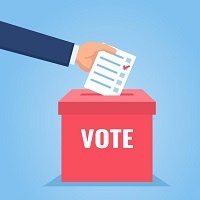Americans love to gamble, but for years a line has been drawn around betting on US elections. That was until the New York-based startup Kalshi sued the Commodities and Futures Trading Commission over the issue. And in early September, a Judge agreed with the company and overturned the Commission’s prohibition on the activity. Kalshi then began offering election bets before the CFTC appealed the courts decision.
Now the whole matter of betting on US elections is up in the air again, as the federal appeals court heard the case but has yet to make a decision on the issue. However, during the eight-hour period when Kalshi was accepting wagers, they processed about $50,000 bets about which political party would control Congress in November. So obviously, there is a large appetite for these sorts of things.
The CFTC contends that allowing bets on elections could undermine public confidence in an already delicate electoral system. They raised concerns that such a market might lead to increased manipulation and doubts about election integrity. Really? With all the accusations of voter fraud, hanging chads, illegal voting, and even Russian interference we’re worried about a few people placing bets on the outcome?
Kalshi’s legal team argued that a well-regulated and liquid futures market could actually deter manipulation. They claimed that transparency in these markets could help prevent attempts to distort outcomes, thereby reinforcing the system. After some heavy sighs, eye rolls, and sarcastic remarks both sides are eager for a ruling ahead of the upcoming election cycle, but the three-judge panel has not indicated when a decision might be reached.
This discussion occurs against a backdrop of increasing political polarization in the U.S. and heightened scrutiny over election security and integrity. And with November 5th closing in quickly, it’s unlikely that any decision from the appellant court regarding betting on US elections will be reached by that point. But with the candidates running this year, maybe we’re already gambling more than we can afford to lose.




